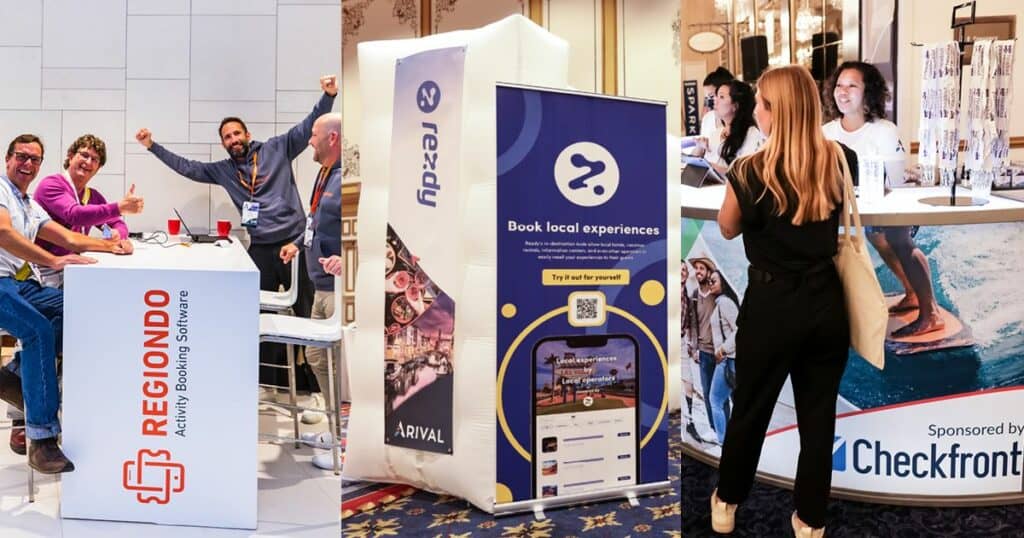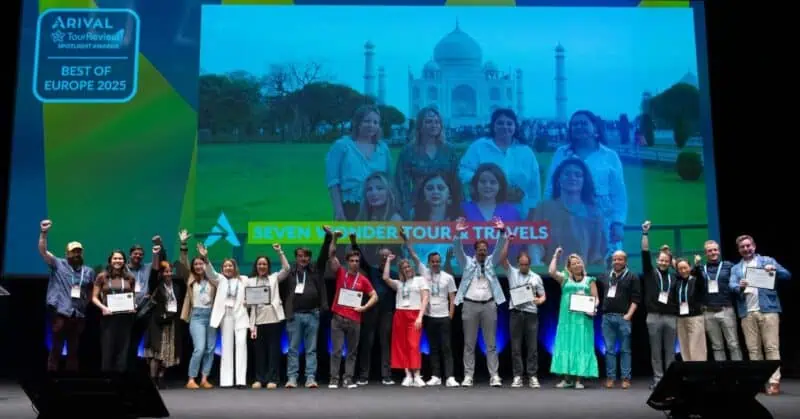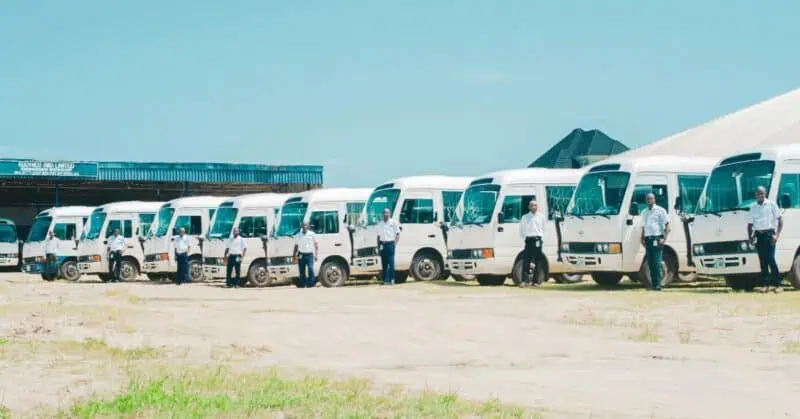Regiondo has been added to the recent Checkfront-Rezdy merger, in a deal which was finalized on June 30.
The addition of Europe-based Regiondo to the Checkfront–Rezdy deal gives the combined reservation technology (or res-tech) company expanded reach in three different major global regions (Europe, North America and Oceania, respectively).
While other companies, such as Fareharbor and Bokun, already have a global presence, this marks the first such company of this scale that remains independent of online travel agency (OTA) ownership (in 2018, booking.com acquired Fareharbor and Tripadvisor acquired Bokun).
So what does this mean for operators, and for the larger in-destination industry as a whole? Recently we traveled to Victoria BC to meet with Checkfront CEO Jason Morehouse and Rezdy CEO Chris Atkin, to get the full story.
Why Regiondo?
Although Regiondo was acquired by Germany’s ProSieben in 2019, it was a natural fit to add to the Checkfront-Rezdy merger, explained Atkin and Morehouse, emphasizing the German-based company’s growth in Europe over the past four years as a key factor.
“Regiondo has already established a strong presence in Europe, a market known for its
complexities,” said Jason Morehouse, explaining that for Checkfront or Rezdy alone to expand into Europe would take years.
“Regiondo was able to evolve from a German-focused booking system to a truly European player with a significant footprint in all major European markets and offices in Germany, France, Italy and Romania,” explained Oliver Nützel, CEO of Regiondo.
What does this mean for operators? Will brands, pricing change?
In the short term, operators that are customers of the three companies probably won’t notice much difference in their day-to-day operations.
The three companies will continue to operate under their brand names and serve their current customers, said Atkin. “We’re not going to move into a world where there’s one size fits all because there isn’t one size fits all for the industry: it all works very, very differently,” he explained.
As for pricing, “that is for our teams to come together and figure out what the strengths and weaknesses of each company are,” said Morehouse. “Who’s up market, who’s down market.”
“Ultimately we need to ensure that we are delivering value to our varied customers,” added Atkin. “That’s critical to fulfill our stated commitment to deliver the best product & service to the industry.”
30 September – 3 October 2025
Insider Pro Access Members Save 20%
THE event of the year for solutions-focused In-Destination Experience creators and sellers
Get Your Spring Savings Ticket Today!
What does this mean for the wider in-destination industry context? Consolidation… and connectivity.
Pre-pandemic there were a number of efforts by both larger res-tech players and private equity firms to consolidate technology providers. The space is highly fragmented: with more than 100 booking system providers, it’s difficult for operators to determine how to choose one (Arival has created a guide to help), and challenging for distributors to connect the supply, with different APIs for each competing system.
“This is the bigger vision, this is why we’re doing it,” explained Morehouse. “It’s to bring this space together… and then concentrate our resources and our understanding of this space to benefit the operator.”
“It allows us to bring strategic supply from an independent level that does not exist,” he adds. “Approaching an OTA or a payment provider to get priority with 15,000 operators, there’s no independent supplier at that scale, so it allows us to accelerate what we think is important.”
So what is important? While consolidation is one strategy, and channel management certainly has a role to play there — the ability to connect operators with multiple distributors, one of the things Rezdy brings to the table — advancing connectivity is another way to move the industry forward. Or, as Morehouse puts it, “make all this madness go away of building all these APIs into thousands of different suppliers.”
“We’ve always been very close to OCTO,” he said, referring to the association pushing for a connectivity standard in the tours, activities and attractions sector. “If you look at the big picture, 15,000 suppliers, the long tail is really small, so it allows us to come together at least in some consensus and say ‘here’s what we want and here’s what makes the best sense for our customers.”
What’s Next for Res-Tech? Learn More At Arival!
So what’s next? Will there be more acquisitions? Atkin and Morehouse can neither confirm nor deny, however given their stated (and likely unstated) goals, it would not come as a surprise to learn of future acquisitions. Will they attempt to expand their reach into Asia, for example, another market that like Europe is difficult to enter without local expertise and connections? Or expand to new verticals, adding more functionality for their operators with things like waivers or insurance? Or both?
Arival will continue to cover this story as it develops — stay tuned for more details and get on our newsletter list to make sure you don’t miss out!
The recent merger will undoubtedly be a subject of discussion at the upcoming Arival in Orlando, and Regiondo as well as Checkfront and Rezdy are confirmed to attend. Join us at Arival 360 | Orlando to learn more and connect in person with leaders from across the in-destination experiences sector.
Become an Insider Pro Access member today and get access to the full library of Arival research, plus many other benefits such as free consulting sessions, special discounts and 20% off in-person events, starting from $179 per year.
Sign up to receive insights tailored for the in-destination industry as well as updates on Arival.

















